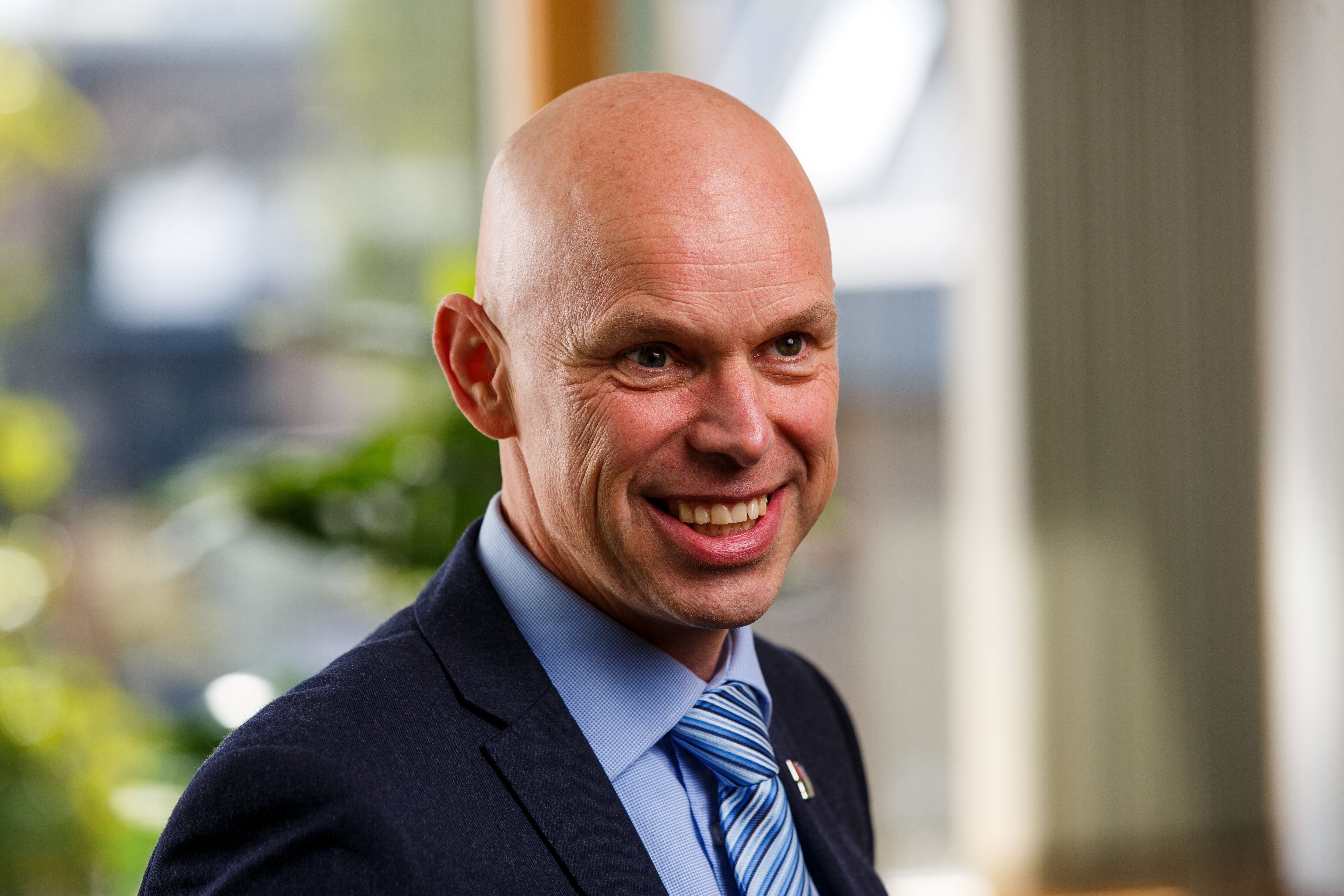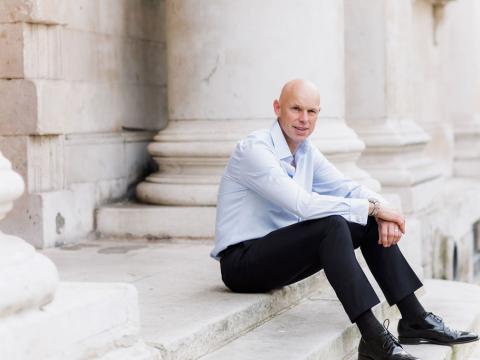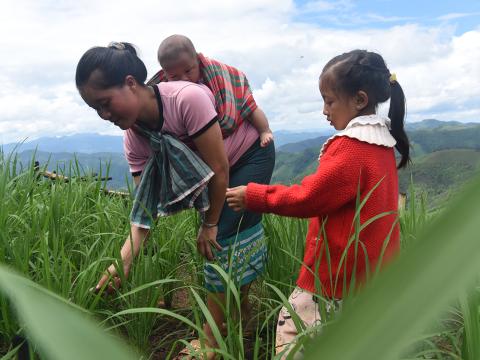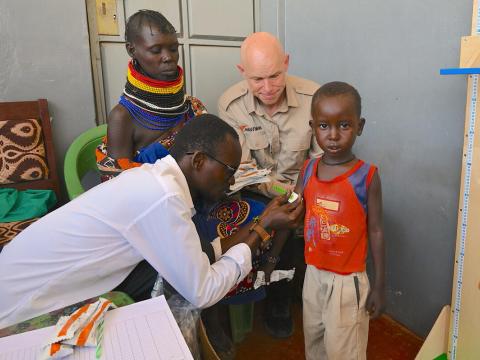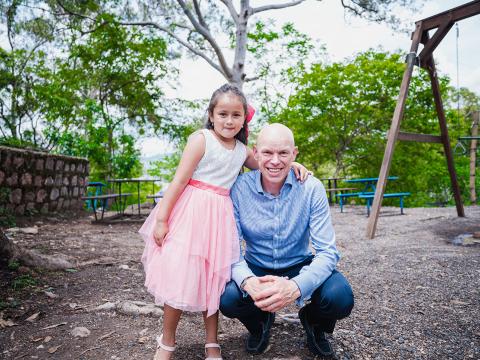
Bearing witness through deeds, with children as our partners
As I travel around the world, hearing from children in every region, I have a growing sense that an opportunity is being missed. We should listen more to children. Children tell us that they learn about the love of God not only through words but also through deeds. I say this as the leader of World Vision International, a child-focused humanitarian organisation, and as an ordained Anglican minister.
In World Vision’s research with children, sixteen-year-old Emmanuel from Brazil told us that the world needs help. He cited climate change as an example, and said people need to “talk less and act more.” In our experience, children want to be actively involved in righting the wrongs of the world. It’s hardly surprising, considering they have the most to lose in the face of conflict, emergencies and hunger.
Children are the heart of our vision at World Vision, which is to see life in all its fullness for every child. Not only are we led by Christ-centred faith in our work, but our work is an expression of our faith. When we help a child go to school or when we help a child recover from malnutrition, this is our way of expressing the love of God.
The Gospels make it clear that Jesus considered children as exemplars of God’s Kingdom. At World Vision, we uphold one of the principles of the United Nations Convention on the Rights of the Child that states children have the right to participate—and to be listened to—in all decisions that affect them. More than just a human right, this is essential to child-focused programming.
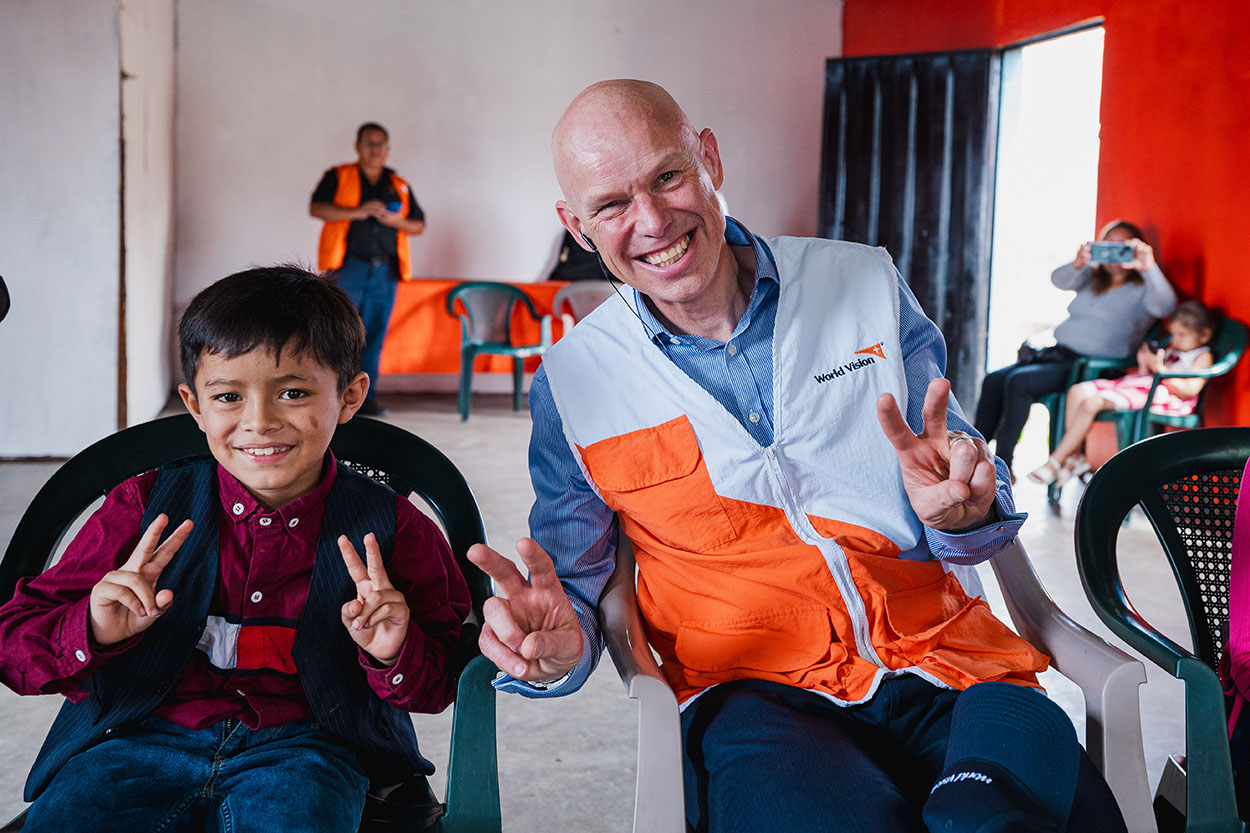
We have institutionalised child participation in World Vision: children have a say in decision-making at all levels of the organisation. Through child-led research, child-led mobilisation and youth-led advocacy, we have helped children amplify their voices so they can speak to the powerholders of the world. Their input has led to policy changes at national levels and influenced global campaigns.
One area where child participation played a crucial role is in helping to end violence against children. In 2023, 1.1 million children and youth in our sponsorship communities took action toward this goal—seeing policies and practices changed in multiple countries around the world.
Children told us they are particularly concerned about the most vulnerable children in their communities: those with disabilities or those at risk of early marriage. They have challenged World Vision to keep doing whatever we can to bring about change for the least of these (Matthew 25:40).
When we conducted a listening exercise with children who were considered some of the most vulnerable in their communities (i.e. they had experienced war, extreme poverty and forced migration) from six countries, we discovered that children see the presence of God through practical, positive human acts.
For example, they told us they feel God’s presence when their home lives are stable, creation is cared for, people have harmonious relationships, there is peace and justice, and poverty and hunger are eradicated through caring ways. They told us they need a safe, stable home; food, water and healthcare; education; coping skills, and an understanding of God’s Word and values.
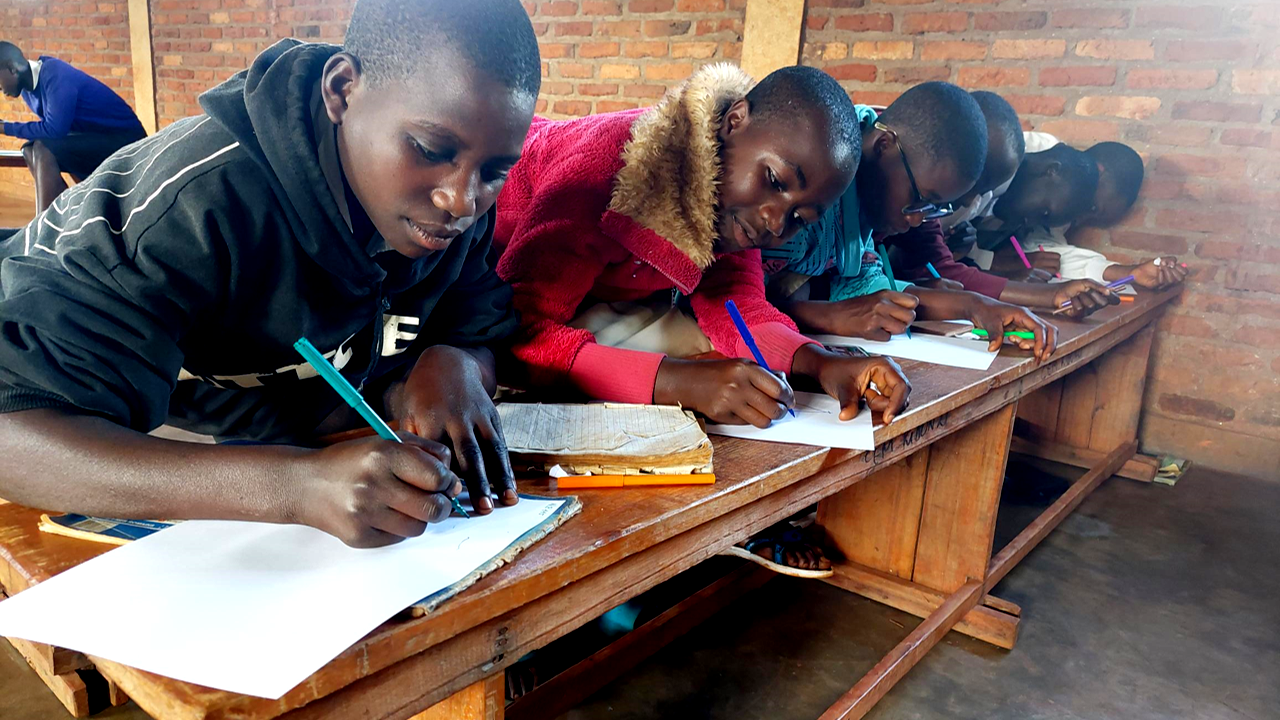
This is where a major opportunity presents itself: the Church can extend its witness beyond preaching the word to include deeds that actively promote holistic well-being with children.
Based on children’s responses to our listening exercise, as described in our report, Listening to Children, we recommend our church partners consider adopting some of these approaches:
- Provide for the physiological needs of children. Children need shelter, safety, nutrition, medical care, and education for their development. These are the basics for nurturing children towards physical health and mental well-being.
- Help children acquire a vision for God’s ministry. Children are like mustard seeds—small but power-packed. All children have the potential to grow and be a blessing to their families and communities. The Church has a role in teaching and raising their consciousness.
- Build hope in a loving and faithful God. Children’s dependence and hope in a loving and faithful God builds resilience, which enables them to thrive. Resilience is primarily nurtured through relational bonds. It takes a village to raise a child.
- Invite children to be co-partners in God’s mission. Children are the emerging force to share in God’s work of transforming people and communities. As Jesus says in Matthew 19:14, “Let the little children come to me and do not hinder them, for to such belongs the Kingdom of heaven.”
We hope our faith partners, including churches, are inspired by our experiences in empowering young people to bring about holistic transformation and become Christ-like leaders. Children can be equal partners in mission and have the potential to be powerful change agents with their fresh perspectives, youthful energy and unique ways of rallying others.
My colleagues and I are joining with over 10,000 Christian leaders at the Fourth Lausanne Congress this week—a landmark event where attendees will take a fresh look at advancing the Church’s global mission. World Vision’s Bob Pierce helped start the Lausanne movement in 1974. Over the years, World Vision staff have used the congresses to remind the Church of its commitment to acts of justice and compassion, and to keep children at the heart of God’s ministry. This latest Congress will be no different.
Andrew Morley is World Vision International's President and CEO
